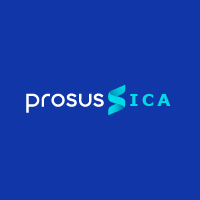
Prosus SICA
View Brand PublisherProfit with purpose: Investing in assistive technology
Private equity, by channelling capital to innovative ideas, can play a pivotal role in solving complex global issues. But to maximise impact, PE investors must recognise that the pursuit of impact and financial returns are not mutually exclusive.
Where these two dynamics meet is often referred to as ‘impact investing’ - a new kind of asset management, behind value, growth, and ESG, that seeks to leverage capitalism for good.
Large family offices and traditional investment management firms are increasing allocations, anywhere from 5-10 to 25-50 percent, to enterprises providing societal needs such as affordable housing and products and services.
In recent years, these funds have typically focused on three sectors globally - microfinance, social housing, and energy; but assistive technology is beginning to gain attention.
Prosus Social Impact Challenge for Accessibility (SICA) 2021 is an initiative by Prosus, the global consumer internet group of Naspers, that awards grants to Indian startups with the most promising examples of assistive technology. Recipients also qualify for the Prosus SICA mentorship programme. A key measure of the startups is their ability to win private investment.
The startups are selected by a panel of judges drawn from public health, public policy, technology, venture capital and private equity. Their assessments began on November 25, and the demonstrations so far have been promising.
Enabling ‘impact’ growth
Vidya Chandy, a jury member for Prosus SICA 2021, has 17 years’ experience in fintech and four years in the impact sector. As vice president, Impact, at Bengaluru-based Chiratae Ventures India Advisors, she has made the VC firm one of the first among mainstream investors to measure ‘impact’.
Chiratae started out in 2006 with a focus on capitalising on the booming technology and software industry and saw impact investing as a natural progression.
Vidya, who has been involved in mobile payments since its early years in India, recognised the power of technology in transforming lives, through scale and reach. “That was the start of my interest in assistive technology,” she says. “Profit with purpose is becoming an important aspect of fund strategy, given the growth in the value chain of conscious capital,” adds Vidya.
Diversity, equity, and inclusion is a core part of that strategy for the fund, its portfolio, and the investments it makes. Assistive technologies addressing massive unmet needs appeal to PE and VC funds “because they solve well for the duality.”
Chella Krishna, a chartered accountant and advisor to large family offices, agrees. With more than two decades’ experience in consulting and studying project viability in both commercial and non-commercial sectors, he has evaluated many innovations that fuel social impact and has actively participated in enabling investments in such companies.
Investments in assistive tech can be viable, he says. The market size is massive, says Chella, since everyone will need assistive technology as they age.
Sehraj Singh, India Managing Director, Prosus, re-enforces the point about potential. "We believe that there can be a thriving market for assistive technologies and last year’s excellent response to our inaugural Prosus SICA initiative validated this belief” he says.
How Prosus SICA helps unlock more opportunities
Both Chandy and Krishna see Prosus SICA as pivotal in offering a platform and visibility to assistive technologies, and potentially attracting early-stage investments. The initial stage of any startup is the most crucial. This is especially true for a social impact startup that has limited access to traditional investment sources such as PE and VC, says Chella. It takes a long time to become viable but surviving beyond the first two years is a definitive sign of viability, even long-term success.
Prosus SICA, he notes, gives not just capital but direction. “Bringing in experts and support in a company’s nascency can help avoid those initial mistakes. The grants that Prosus SICA provides are a great way to start for a founder of an assistive technology company- they benefit from the confidence shown in the business by the jury and establish a springboard from which to attract further investor interest,” he says
What will the jury be looking for in its assessments during the jury rounds of Prosus SICA 2021?
Vidya hopes for a level of professionalism that would appeal to, say, Chiratae making a seed investment. She will assess the applicants as she would judge any startup. That means identifying novelty, market opportunity and fit, and scalability.
“Extra points if the product is deep tech, where an IP has been thought out or a technology is difficult to replicate,” she says. For instance, funding by Chiratae has enabled Aether, a rehabilitation platform and medical robotics company, to scale. Their multi-action bionic limb is a “best-value and high-efficacy product,” she says.
Chella advises startups to alter the dimensions in which their product becomes available to the disabled. “I would be looking for a more empathetic display of innovation,” he shares.
SICA’s top startups will be announced in December to mark the International Day of Persons with Disabilities.







